#utah beach
Explore tagged Tumblr posts
Text

A US Medical Unit wades ashore through the shallows at Utah Beach - Normandy, 6th June 1944
#world war two#ww2#worldwar2photos#history#1940s#ww2 history#wwii#world war 2#wwii era#ww2history#normandy#normandy landings#dday#dday landings#Utah beach#Utah#France#1944#january 6th#medic
293 notes
·
View notes
Text
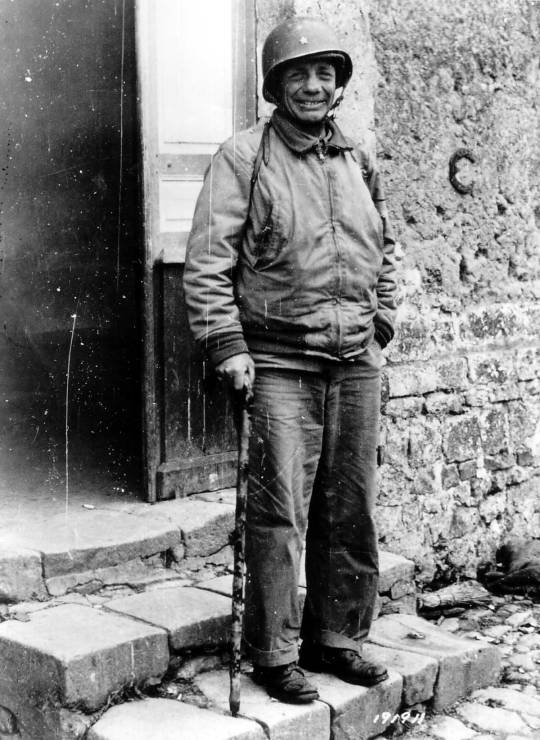
Brigadier General Theodore Roosevelt Jr. -- the eldest son of the 26th President of the United States -- was the only Allied general to land on the beaches of Normandy with the first wave of soldiers during the D-Day invasion on June 6, 1944.
Crippled by arthritis, hobbled by old combat wounds from the First World War, and forced to use a cane as he landed on Utah Beach with the U.S. Army's 4th Infantry Division on D-Day, General Roosevelt was the oldest man to take part in the opening stage of the invasion. He had made three requests to personally lead the assault on Utah Beach before finally being given command despite concerns about his health. During the confusion and chaos of the largest seaborne assault in human history, Roosevelt realized that tidal currents had carried nearly two dozen of the initial landing craft to the wrong location and was said to have announced, "We'll start the war from right here!"
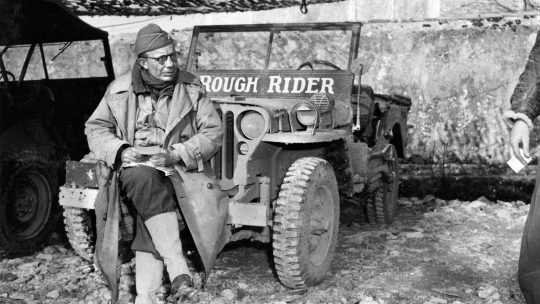
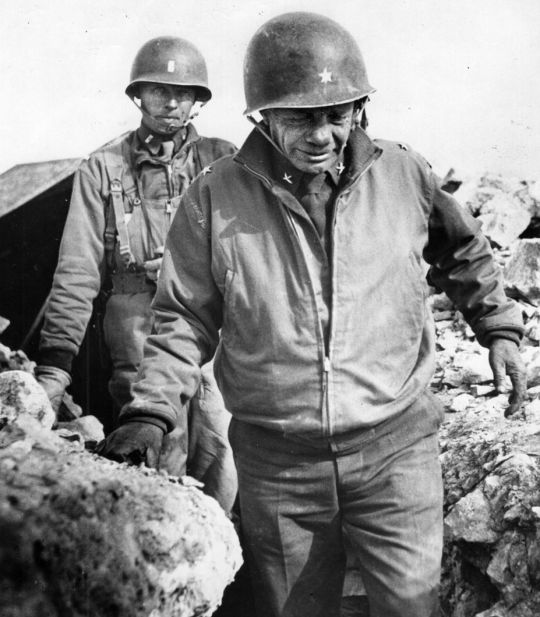
For his actions on D-Day, General Roosevelt would be awarded the country's highest military decoration, the Congressional Medal of Honor, on September 21, 1944:
For gallantry and intrepidity at the risk of his life above and beyond the call of duty of 6 June 1944, in France. After two verbal requests to accompany the leading assault elements in the Normandy invasion had been denied, Brig. Gen. Roosevelt's written request for this mission was approved and he landed with the first wave of the forces assaulting the enemy-held beaches. He repeatedly led groups from the beach, over the seawall and established them inland. His valor, courage, and presence in the very front of the attack and his complete unconcern at being under heavy fire inspired the troops to heights of enthusiasm and self-sacrifice. Although the enemy had the beach under constant direct fire, Brig. Gen. Roosevelt moved from one locality to another, rallying men around him, directed and personally led them against the enemy. Under his seasoned, precise, calm, and unfaltering leadership, assault troops reduced beach strong points and rapidly moved inland with minimum casualties. He thus contributed substantially to the successful establishment of the beachhead in France.
However, the Medal of Honor would be awarded to Theodore Roosevelt Jr. posthumously. On July 12, 1944, thirty-six days after landing in Normandy on D-Day, General Roosevelt died in his sleep at the age of 56 after suffering a heart attack. In a letter to his wife, General George S. Patton would write, "Teddy R[oosevelt] died in his sleep last night. He had made three landings with the leading wave -- such is fate...He was one of the bravest men I ever knew." General Patton would join General Omar Bradley and numerous other generals as honorary pallbearers at Roosevelt's funeral. Roosevelt was buried at the Normandy American Cemetery and Memorial along with thousands of his fellow American soldiers who died in Europe during World War II. He is buried next to his youngest brother, Quentin Roosevelt, who was killed in action in 1918 after being shot down over France during World War I.
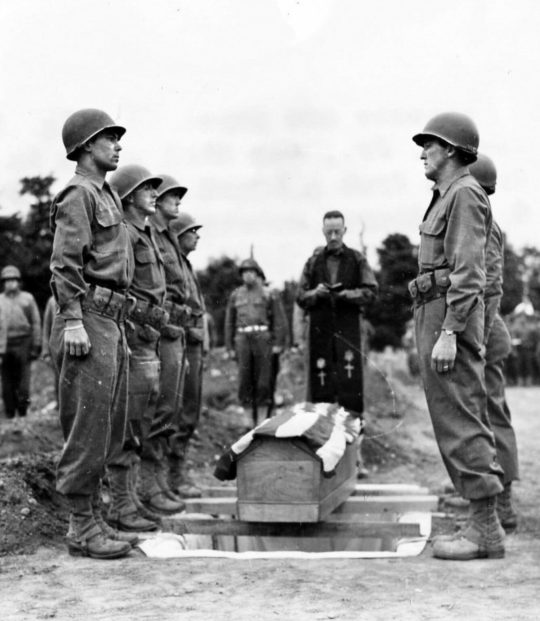
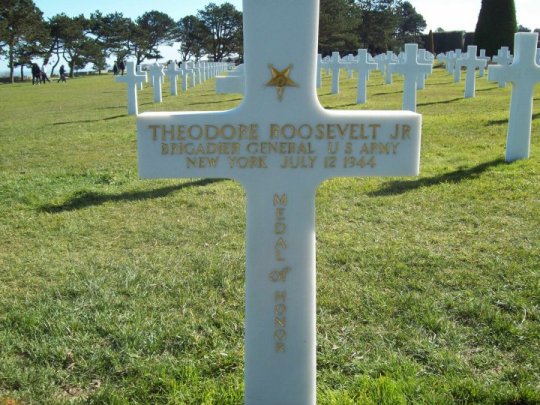
#History#Theodore Roosevelt Jr.#General Theodore Roosevelt#Ted Roosevelt#Brigadier General Theodore Roosevelt Jr.#D-Day#D-Day 80#D-Day + 80 Years#World War II#WWII#Second World War#Military History#U.S. Army#Generals#Normandy Landings#Battle of Normandy#D-Day Invasion#Operation Overlord#Normandy#4th Infantry Division#Allied Generals#Theodore Roosevelt#General Ted Roosevelt#President Roosevelt#Roosevelt Family#Quentin Roosevelt#Allied Invasion of France#Utah Beach#Medal of Honor#Congressional Medal of Honor
92 notes
·
View notes
Text

Operation Overlord - D-Day - June 6th 1944
On this day 79 years ago allied troops began landing on beaches in Normandy for the D-Day invasions. The beaches were given the code names UTAH, OMAHA, GOLD, JUNO, and SWORD. The invasion force included 7,000 ships and landing craft manned by over 195,000 naval personnel from eight allied countries. Almost 133,000 troops from the United States, the British Commonwealth, and their allies, landed on D-Day.
#D-Day landings#Normandy#june 6 1944#paratroopers#utah beach#omaha beach#Pegasus bridge#operation overlord#sword beach#gold beach#Juno beach
87 notes
·
View notes
Text
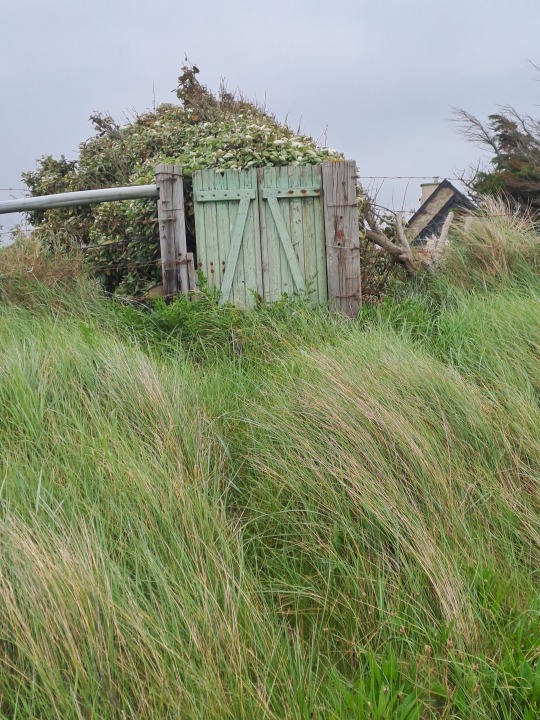
A door to close the wind...
91 notes
·
View notes
Text



.
Utah beach
Walking along all those beaches 80 years later and you can still feel how heavily in history the area is rooted.
2 notes
·
View notes
Photo

Des soldats français du 12e Régiment de Chasseurs d'Afrique de la 2e Division blindée débarquent sur la plage d'Utah Beach avec en tête le Sherman 'Ile-de-France' – Bataille de Normandie – 2 août 1944
©National Archives and Records Administration – 111-SC-199797
#WWII#Opération Overlord#Overlord#Bataille de Normandie#Battle of Normandy#Armée française de la Libération#Forces Françaises Libres#French Liberation Army#FFL#Free French Forces#12e Régiment de Chasseurs d'Afrique#2nd Armored Division#Char#Tanks#Char moyen#Medium tank#M4 Sherman#Sherman Ile-de-France#Utah Beach#Manche#Normandie#Normandy#France#02/08/1944#08/1944#1944
35 notes
·
View notes
Text
Here, 80 Years Ago
A moment of historical solemnity. I took this video a few weeks ago. I was standing on Slapton Sands beach, a few miles from where we live here in Dartmouth, Devon: [Slapton Sands beach, Devon. Video by me, April 1, 2024.] Slapton Sands, with its shingle surface, and the fact that behind it, just a few yards inland, is a lagoon… [Looking toward Slapton Sands beach, just inland, across part of…

View On WordPress
#anniversary#authors#books#D-Day#Exercise Tiger#France#history#military#photography#Slapton Sands#travel#Utah Beach#World War II#writers
2 notes
·
View notes
Text
80 ans après: Les Plages du Débarquement du 6 juin 1944 - Sword, Juno, Gold, Omaha, Utah

View On WordPress
#D Day#débarquement#film photography#Gold#heros#histoire#hp5#ilford#Juno#kodak#Omaha Beach#photographie argentique#souvenir#Sword beach#utah beach
0 notes
Text

As I sit at the desk in my little flower shop this morning, I find myself thinking of two of my grandfather's brothers, both of whom landed on the beaches of Normandy. One landed on Omaha Beach, the other on Utah Beach. My own grandfather might have been there too, but unfortunately, we will never know for sure. We never had the chance to ask him, and his army records were destroyed in a fire 51 years ago when the records office in Missouri burned down.
One can only imagine what must have been going through the minds of those brave men - boys, really - on this very day eight decades ago and the traumatic experiences they must have endured in the following days. It would have been hard enough for those born on British shores, but my thoughts are with the Americans, as my relatives were from the other side of the Atlantic. They had already left their homes months or years before, finding themselves in unfamiliar lands before being shipped off again. They weren't afforded the luxury of a goodbye kiss from their wives, although I assume many, like my own grandfather, found sweethearts here and managed to steal a kiss from them. I may have had British relatives over there, but I was never told about anyone. Like many from that generation, the war wasn't really discussed.
Did they know the scale of the operation they were to become a part of? I think perhaps not at the beginning, as so many were training in different parts of the country with their own units. I believe the majority had no idea of the magnitude until they saw the vast number of boats crossing the channel. Young men from all walks of life took part - rich, poor, straight, gay, brash, and shy. On that day, they were all equal. They all had a part to play, a job to do, a life to lose.
I think about that a lot. How many men died so that we might live freely? How would they feel if they were to see the world we live in today? The surviving servicemen must often wonder whether it was all worth it. Watching their friends and family die, only to see the world as it is today - no safer, and not really any freer.
I won't speak for all young people today, as there are many incredible ones out there, but the thought of many of them being called up for action to defend our shores and our liberty fills me with unbelievable dread. The idea of reinstating National Service seems good in principle, but it will likely attract only those who are already exceptional. The thought that our future might one day rest in the hands of those who are less than exceptional is beyond comprehension.
Times change, of course; things move on, we progress - or at least that's what we're led to believe. For now, at least, the brave men, women, and children of past conflicts are remembered, mostly with the respect they deserve. However, there are still some who lack respect for anyone but themselves, and that’s the hardest part for me. My generation will most likely be the last to actively honour those men. Generation Z may make some effort, but by the time we reach Generation A, I fear those brave souls may be relegated to history, much like the Crusades or the Wars of the Roses - events that have faded into the eternal annals of history.
I wish we, as a nation and as a world, could help future generations understand the importance of not forgetting. In forgetting, we are doomed to repeat the same mistakes. Both sides made many mistakes during World War II, but D-Day, this very day, June 6th was the day that helped change everything, the day that helped win the war and free those who were occupied.
On June 6th, 1944, those brave boys stormed the beaches, facing offshore contraptions covered in barbed wire that many got caught in, leaving them vulnerable to enemy gunfire with no hope of escape. The weather was foul. They walked off the landing craft into rough seas and a hail of bullets. They watched their friends, family, strangers take bullets and die right in front of them. Eye-witness reports describe the sea turning red from the amount of blood spilled. Can you even begin to imagine the utter horror of such an experience, knowing that any second it could be YOU? Can you imagine today’s gangs, thugs, and generally despicable individuals, who have no thought for anyone but themselves, being brave enough to do such a thing? Then, once they finally reached the shore, they still faced an uphill battle.
I sat on Omaha beach back in November 2013. Just a few days prior to Remembrance Sunday. There was just me, the friend I travelled with and a family of four a little further along the beach. There wasn't a cloud in the sky; the tide was out, the sky was a little grey and the sand a beige colour, with waves gently lapping off the shore. If it hadn't been for a couple of pieces of Mulberry Harbour still visible, and the few gun turrets dotted about, you would never know anything had taken place. It was just a beautiful crisp autumn day.
Even though I knew what had happened I found it so hard to imagine how it must have been on that day. I pulled images from deep in my memory, along with new ones I had seen whilst visiting the American Museum at Omaha to try and visualise it. I was able to get some kind of sense but never in a million years would I ever be able to see it as those who finally made it to shore had. How they would have been looking back at the waves crashing over their dead friends/family. Watching boats being shelled, men being blown out of the water. The blood, an inordinate amount of blood. No wonder so many survivors never wanted to talk about it.
Then something really strange happened, something all six of us on that beach heard. I can only describe it as an exploding sound. All of us - the family still further along than we were, my friend on his way up the cliff to check out one of the gun turrets - looked in the same direction, expecting to see smoke rising. I stood up to get a better look, wondering what the hell was going on. Had a plane coming in from the opposite direction crashed? Had someone dropped a bomb, or come across an unexploded hand grenade, or mortar, which had just triggered? There was nothing: no smoke, no screams, no sound other than the sea water lapping onto the beach. The family made their way over to me, and through their broken English and my atrocious French, we ascertained that all of us had heard the sound and described it the same way. It was a shared experience that left us all puzzled and a bit unnerved, especially given the history of the place.
My friend carried on up the cliff, the family left (still as bemused as I was) so I took a walk onto a raised platform; it was like a pier, but only about thirty feet long and in the middle of the beach. Standing there, looking out to sea still pondering what the noise could have been, I then had what I can only describe as a bullet whizz past my ear. I actually felt the breeze from it. I knew the sound from the movies I've watched, especially those with a five, or seven D surround sound system, but this wasn't coming from a speaker, in a cosy room as I sat on a comfortable seat. I was on a beach, a beach shrouded in history, a beach where bullets would have flown past the ears of, into and through people. It was, hands-down, the most surreal moment of my life.
Was I still reeling from the explosion sound and imagined it? Put me through a lie detector a thousand times and I will tell you the same thing; to me it was as real as I am right now typing this. Did I experience some kind of timeslip, or enter a vortex for what would have been less than three seconds? I can't answer those questions because I don't know; what I do know is what I heard. There is no rational explanation for it.
Yes we remember them today, but we should remember them each-and-every day. We have what we have, are able to lead the lives we lead, because they (along with their parents, grandparents, siblings, aunts and uncles in previous wars and for all the years before - and after - the D Day landing) put their lives on the line for us. They died so that we may live. We must never forget.
#d day#d day 80#veterans#omaha#omaha beach#juno beach#utah beach#sword beach#gold beach#normandy#allies#allied#remembrance#never forget#honor
1 note
·
View note
Text
Roaming the picturesque Cottentin Peninsula: A 5 days campervan road trip in Normandy, France
The Cottentin peninsula with its rough but beautiful northern landscape is yet another (and maybe less crowded) great travel destination in France. Its coastal road offers breathtaking panoramic views and lots of amazing campervan spots. Winter in Brittany: 5 epic days of vanlife in Finistère by Selina 7 June, 2020 Pointe du Raz: Hiking at the End of the World by Selina 10 May, 2020 Day 1 –…

View On WordPress
#bafleur#campervan#cap levi#cottentin#dday#dunes de biville#Europe#fort of the hogue#mont saint michel#nez de jobourg#Normandy#park4night#phare de gatteville#pointe de la hague#road trip#roadtrip#st vaast la hogue#utah beach#vanlife
0 notes
Text
Bonus Poll






A past flag of Provo, Utah, United States (1989-2015) vs The current flag of Lubec, Maine, United States vs The current flag of Bienville Parish, Louisiana, United States vs The current flag of Slaughter Beach, Delaware, United States vs The current flag of Whittier, California, United States vs The current flag of Biggar, Saskatchewan, Canada vs
#cft bonus polls#flag: Provo - Utah - United States (1989-2015)#flag: Lubec - Maine - United States#flag: Bienville Parish - Louisiana - United States#flag: Slaughter Beach - Delaware - United States#flag: Whittier - California - United States#flag: Biggar - Saskatchewan - Canada#eyestrain#eyestrain: color#the only one in the poll not included is tikiraqjuaq bc it's still in play
67 notes
·
View notes
Text
Time to feed the DinoSquad Fandom a little.
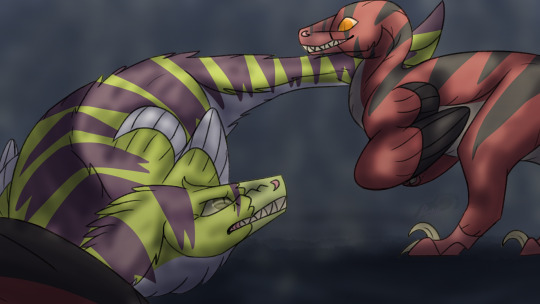

Have a sketch-esk re-draw of the circling scene in the last episode and little character sketches for the scrungle Veloci and tired teacher Moynihan. I gave her wrinkled because i can.
#dino squad#dinosquad#dinosaur#IM IN IM IN IN THE DINO SQUAD#I'M IN I'M IN IN THE DINO SQUAD#ON A BEACH NOT FAR AWAY I WENT TO VISIT FOR A DAY-#AAAAAAAAAAAAAA#How did these two survive this long-#and why is only Moynihan affected by aging#seek science for that question Veloci#HOW THE FUCK ARE YOU ALIVE#ANSWEAR THE QUESTION VICTOR VELOCI#AND WHY ARE YOU CALLED VELOCI??#YA'LL ARE CLEARLY UTAH RAPTORS BOI
184 notes
·
View notes
Text

American tanks on the Utah-Beach, Sainte-Amrie-du-Mont, Normandy region of France
French vintage postcard
#beach#sepia#amrie#sainte-amrie-du-mont#photography#vintage#france#utah#postkaart#ansichtskarte#ephemera#carte postale#postcard#postal#tanks#briefkaart#region#sainte#mont#photo#normandy#tarjeta#historic#french#american#postkarte
9 notes
·
View notes
Text

Just some twisted wreckage on the beach
3 notes
·
View notes
Text
























National Heat Awareness Day
National Heat Awareness Day is observed annually on the last Friday of May, which falls on May 31 this year. National Heat Awareness Day is an effort by the Occupational Safety and Health Administration (OSHA) and the National Weather Service to alert workers, employers, and the public at large about the (preventable) health dangers related to heat, in order to reduce the overall rate of illnesses and deaths caused by it. This day was specially founded as a reminder that many outdoor workers or laborers are at risk of serious heat-induced conditions like heat exhaustion, dehydration, heatstroke, and even death. We bring you tips on how spreading awareness about these conditions and their prevention can help mitigate such unnecessary medical emergencies.
History of National Heat Awareness Day
National Heat Awareness Day was founded by the Occupational Safety and Health Administration and the National Weather Service, an agency of the U.S. Federal Government. While there is no record of its first observance, the importance of this day and what it stands for is why we are including it.
The reality is that every year, in the U.S. alone, people suffer and die from heat-induced illnesses, which could easily have been prevented with the right protective measures and intervention. Groups that are especially vulnerable to heat are outdoor workers (like farmers and manual laborers), young children, elderly adults, people with chronic medical conditions, and pregnant women. Heatwaves have been on the rise over the past few decades, with a definite correlation to climate change and the crisis of global warming. In the U.S. itself, recent history shows the shocking death toll due to heatwaves. While various measures are being taken to adapt to rising temperatures and humidity, there is a need for awareness to be spread in order to mitigate the losses.
Therefore, this day was created in order to spread awareness to overcome the high-temperature-related issues. This day is also observed to encourage the consumption of water to avoid heat-related illness. Americans seem to still underestimate the health risks related to conditions of extreme heat or temperatures, even though it’s the deadliest weather condition in the country. With factors like pollution causing temperatures to rise earlier each year, the onslaught of the heat of summer is coming faster every year. For this reason, it is imperative that the nation at large begins to sit up and take notice of the fact that there are many groups in need of protection from an unexpected killer.
National Heat Awareness Day timeline
1600s The Term ‘Heatwave’ is Born
The term heatwave originates in America.
198o Heatwaves Turn Deadly
A heatwave kills 1,250 in the U.S.
1995 Chicago’s Killer Heatwave
A heatwave in Chicago kills 700 people.
2003 Worst Heatwave in Europe
A heatwave across Europe becomes responsible for over 50,000 deaths.
National Heat Awareness Day FAQs
What are three signs of heatstroke?
Symptoms of both heat exhaustion and heat stroke include fatigue/weakness, headaches, and confusion or dizziness. However, in the case of heat exhaustion, your heartbeat slows down, muscles can cramp and there is excessive sweating accompanied by intense thirst. In the case of heatstroke, your heartbeat quickens, you can experience shortness of breath and your skin feels hot, with decreased sweating and urination. In both cases, the person affected should be moved to a cool, shaded location, given sips of water to drink and their skin needs to be cooled with water or ice (until medical help arrives).
Why is heatwave dangerous?
“Heatwaves can kill via the dehydration caused by heavy sweating; the altered sodium and potassium concentrations in the blood confuse both heart and nerve cells, and so breathing or heartbeat may suddenly stop,” according to DownToEarth.
What is the highest heatwave ever recorded?
The National Weather Service recorded a temperature of 130℉ in Death Valley National Park, California, in 2020. This could be the highest temperature ever reliably recorded on earth!
How to Observe National Heat Awareness Day
Chug, chug, chug that H2O
Commit to protecting the vulnerable
Get the word out
Dehydration is one of the most preventable things, which, if left ignored, can lead to more serious health issues. Therefore it is recommended by experts everywhere that eight glasses of water a day is a good standard to maintain. Not only does your body stay hydrated, but water also helps flush toxins out of the body.
There are many online campaigns and grassroots petitions being signed to support the need for outdoor workers to have adequate laws to protect them from heat and other work- environment-related health hazards. Read up and get involved, because every voice does matter!
With powerful tools like social media at our disposal, we can rally our communities (both virtual and real) to spread awareness about the very real risks of heat-related medical conditions that could affect anyone at any time. Train yourself and someone you know to recognize the signs and take action — a little bit can go a long way.
5 Tips On Beating The Heat This Summer
Stay hydrated
Keep your fashion light and breezy
Slather on sunscreen
Avoid going outdoors in peak times
Limit your activity
The manifold benefits of drinking enough water and fluids cannot be stressed enough.
Wear loose-fitting and lightweight clothing, made with breathable fabrics like cotton.
The importance of sunscreen as protection against the sun is never going to get old.
Avoid stepping out into the sun during its peak hours, especially without protection.
Leave the intense workouts for early mornings or nights, and take it easy during the midday heat.
Why National Heat Awareness Day Is Important
Lobbies to protect the vulnerable
It educates us on prevention methods
It resonates with people everywhere
Several years ago, OSHA began a Heat Illness Prevention Campaign to spread awareness about the dangers of working in conditions of extreme heat. Their petition for change could be boiled down to three simple demands for workers — shade, rest, and water. The onus falls on employers to ensure that their workers are receiving these basic requirements and are being protected from extreme heat and other hazardous conditions.
By reinforcing such basic preventative measures, National Heat Awareness Day brings the reality of things we take for granted (like water) to the forefront and makes us more mindful of our own health.
Heatwaves and heat-related health issues are on the rise all over the world, thanks to climate change. Therefore the message of National Heat Awareness Day is relevant to people across the globe, especially as many nations do not even have access to resources like drinking water and electricity. It opens one’s eyes to the larger realities of social injustice and climate change.
Source
#mocktail#Colorado#Utah#B & K Root Beer Stand#Van Wert#Monument Valley Navajo Tribal Park#Arches National Park#Daytona Beach#Atlantic Ocean#31 May 2024#original photography#travel#vacation#summer 2022#USA#National Heat Awareness Day#NationalHeatAwarenessDay#last Friday in May#Canyonlands National Park#tourist attraction#landmark#seascape#landscape#countryside#2023#Canada#Vancouver#Jasper National Park
2 notes
·
View notes
Text
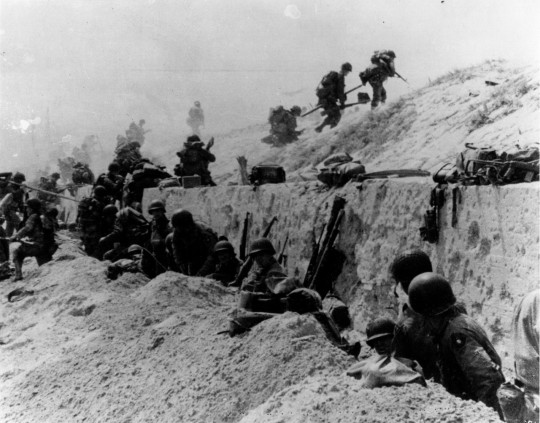
Les soldats américains du 8e Régiment d'infanterie, 4e Division d'infanterie américaine, franchissent la digue d'Utah Beach après avoir débarqué – Opération Neptune – Opération Overlord – 6 juin 1944
Photographe : Army Signal Corps photographer
©National Archives and Records Administration - SC 190062
#WWII#d-day#opération overlord#overlord#opération neptune#operation neptune#débarquement de normandie#normandy landings#armée américaine#us army#4e division d'infanterie#4th infantry division#8e régiment d'infanterie#8th infantry regiment#utah beach#manche#normandie#normandy#france#06/06/1944#06/1944#1944
9 notes
·
View notes